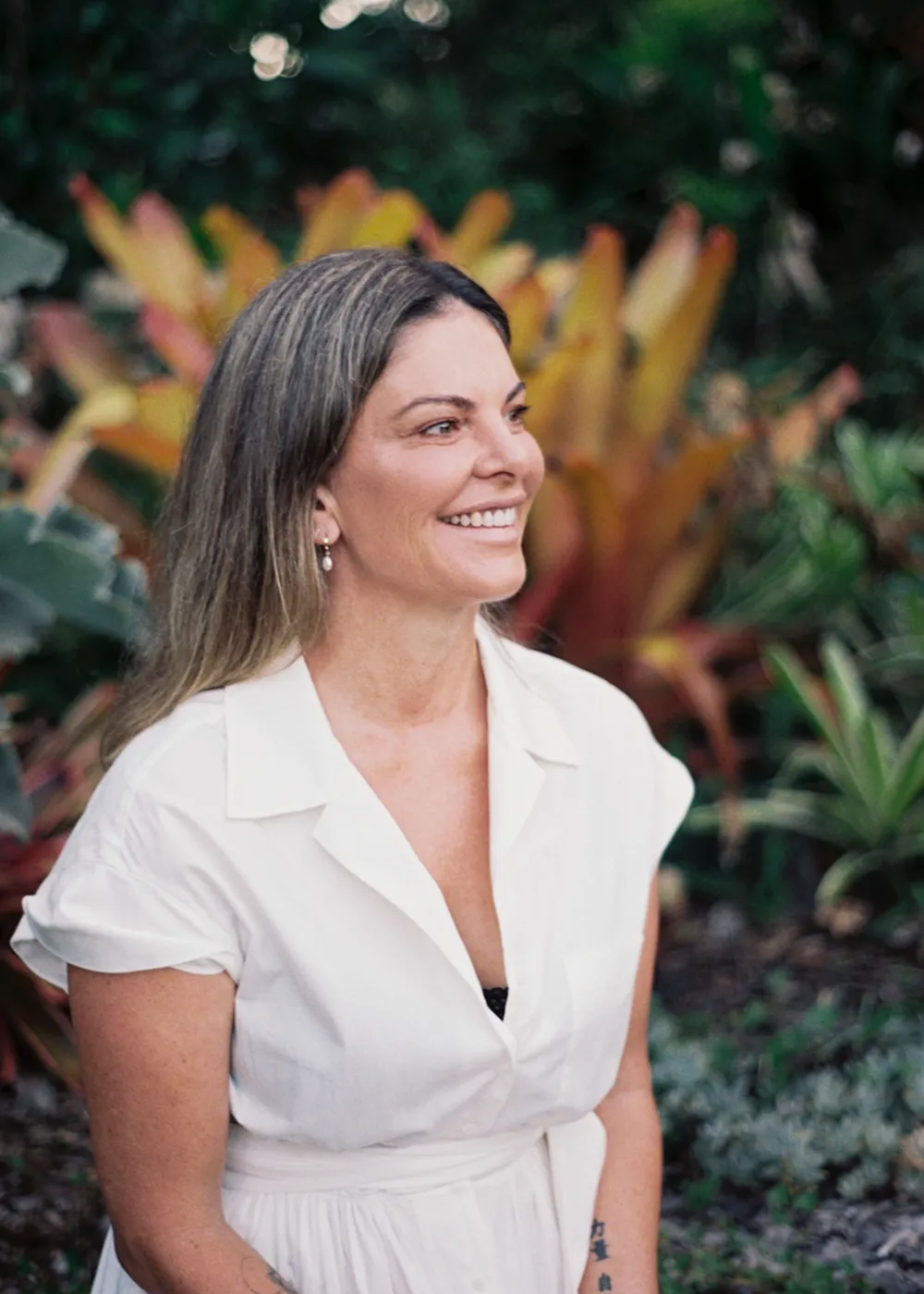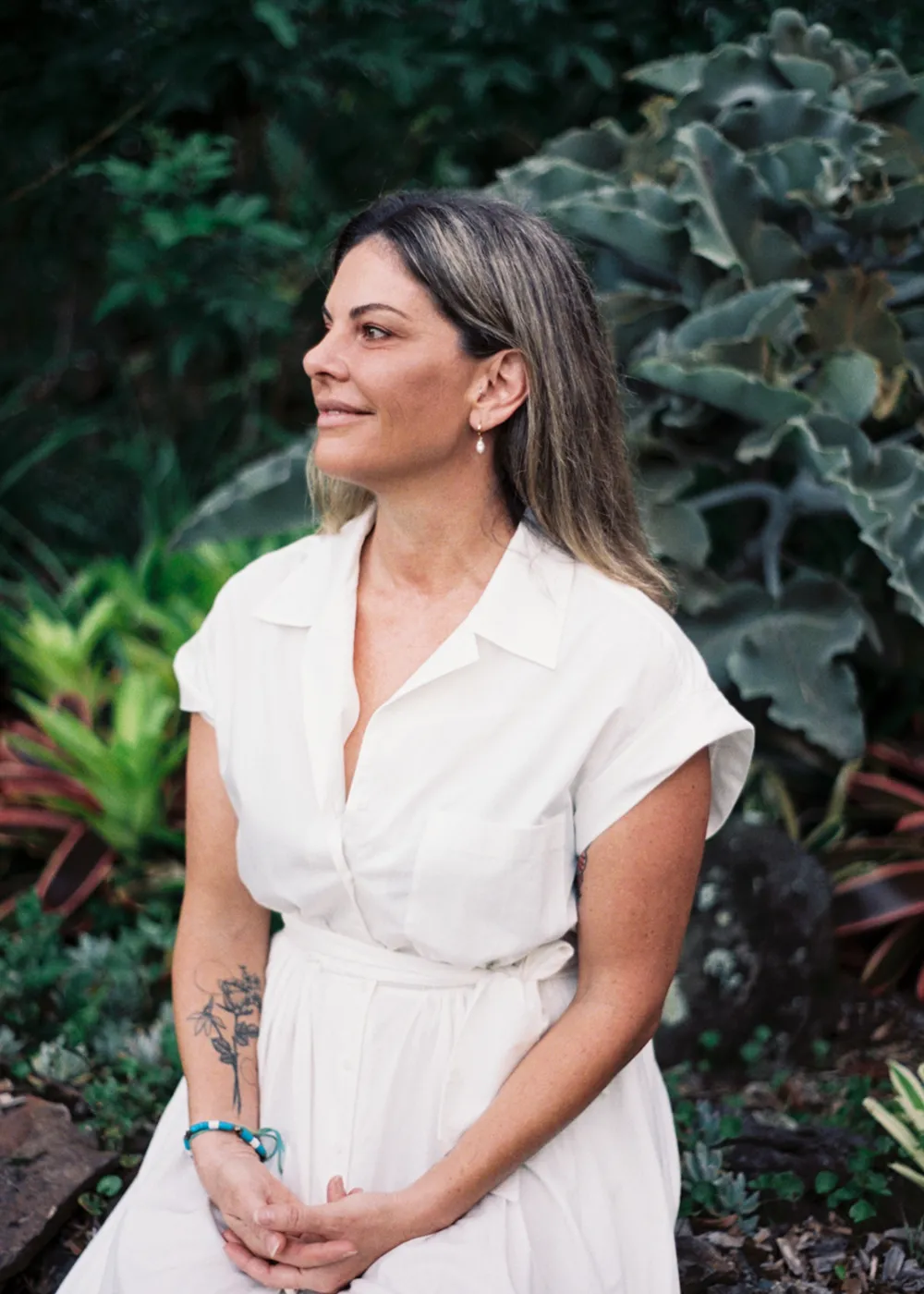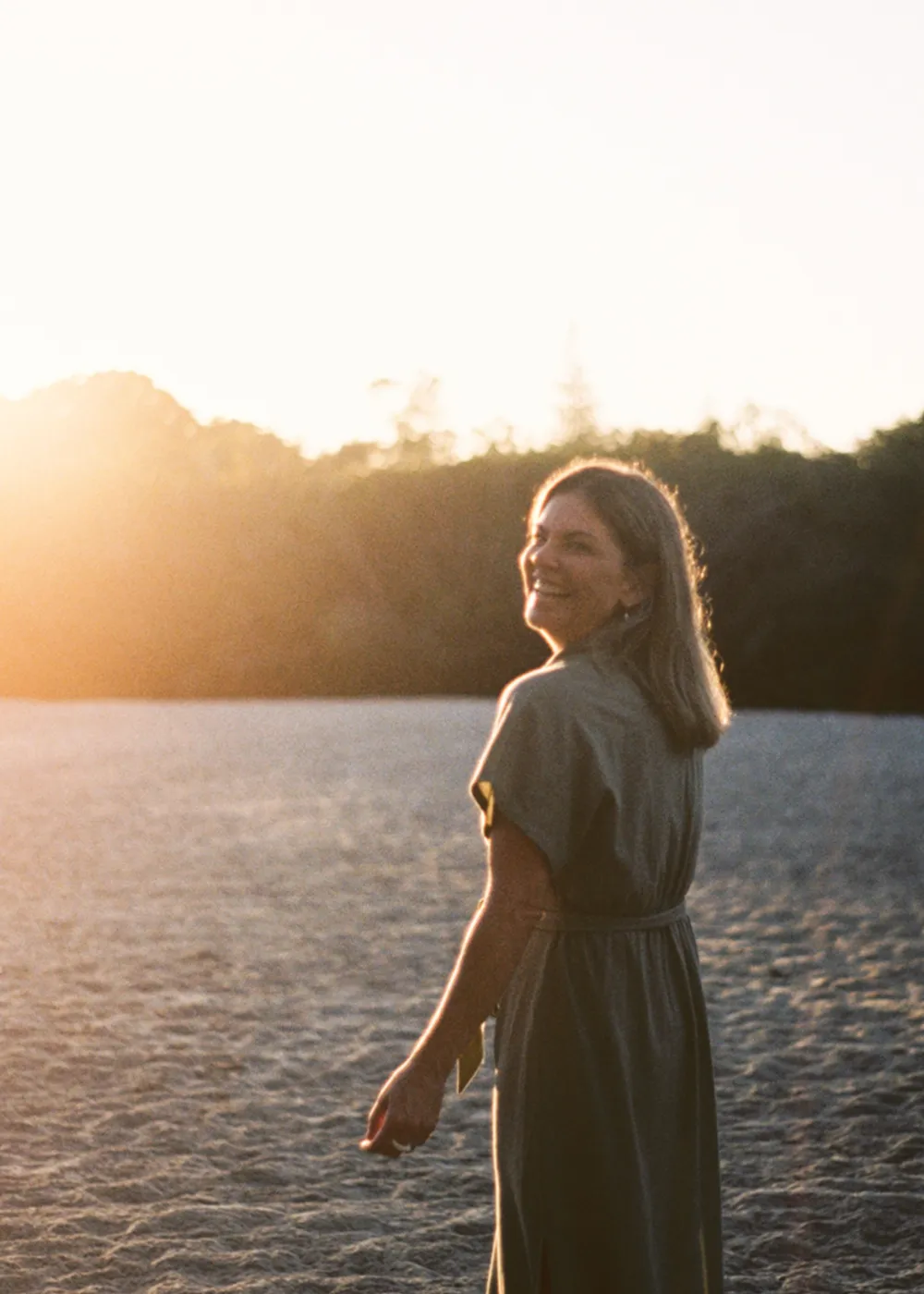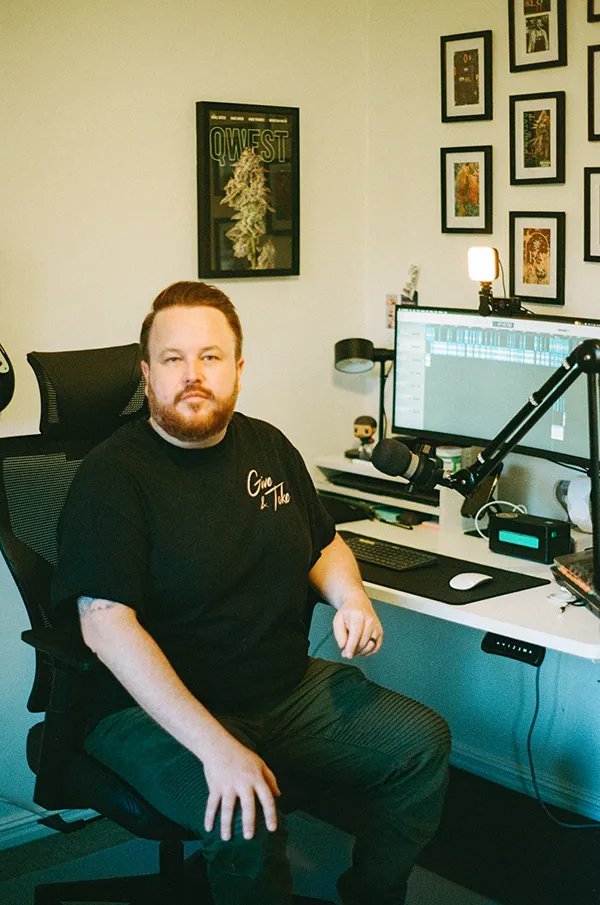
Photography ANTONELLA MORELLI
Interview BEE MOHAMED

Photography ANTONELLA MORELLI
Interview BEE MOHAMED
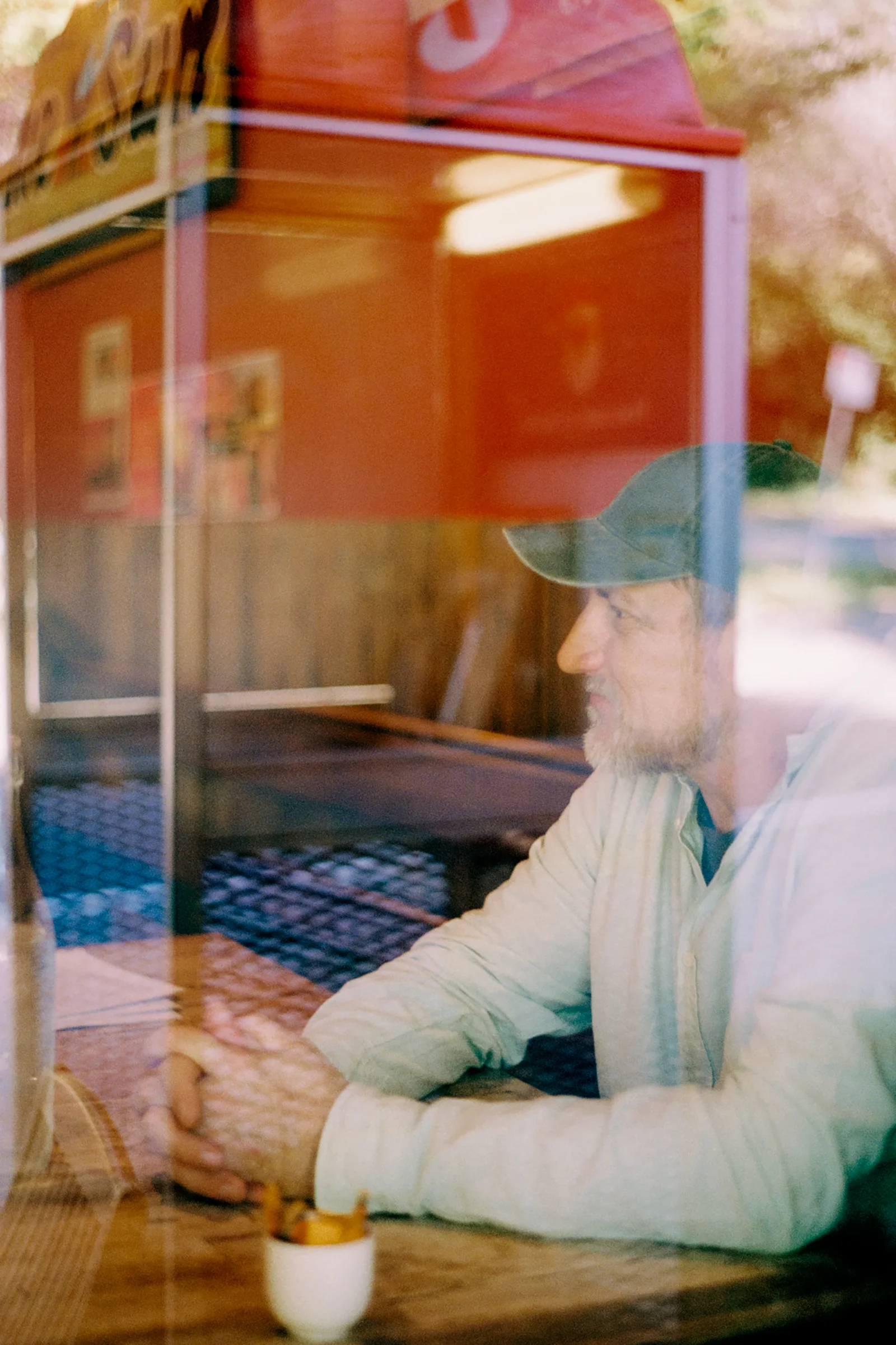
Photography ANTONELLA MORELLI
Words BEE MOHAMED
What was my North Star Ursa Minor moment, some say cannabis comes from the Stars the Canis Major to be precise.
Cannabis has been a caring nurse, and a cruel mistress in my life. In 1997, I travelled to Europe and spent some time providing vapes before returning to Australia in 2000 with the hope of helping patients here.
Unfortunately I slipped in a kitchen, hit my head on a small step and crushed a vertebrae in my neck. I suffered a cervical vertebrae injury at the C3 level and this was debilitating.
A horrible injury to deal with and it took me 9yrs to get over with trigger point injections and nerve blocks, the final straw to try and relieve the constant pins and needles. I was prescribed a whole range of pain medications, which eventually forced me to go cold turkey from the Lyrica, Orphenadrine and Endones.
Cannabis helped me through my withdrawals and I started gaining some quality of life. Without this plant, I would have gone to a dark place and I was losing grip of life. After tapering off my pain medications, I was ready to make a return to the workforce.
In 2013, I returned to the cannabis industry. While my injury left me with horrible nerve pain, I wanted to continue to make an impact and make a difference in the lives of patients who could benefit from this plant too.
I decided I was well enough to travel and had managed to re-enter the work force. I was sitting in a cafe near the Stradbroke ferry having breakfast when a little girl came up and looked at me with a glazed eye and pulled my breakfast off the table.
At that moment I judged this little girl and looked at her parents with a fierce look of, control your child, as she proceeded to have an epileptic fit in front of me on the ground. Thousands of thoughts ran through my mind of the judgement I had just given and the hopelessness of not knowing what to do in that instant.
As the parents ran to her, I disappeared into the commotion, feeling horrible for how in my mind I had just judged this little angel.
I am Mark Anthony Smith, the eldest of seven children, a glitch and ghost in the machine. Having been brought up to put myself last and to fight for the betterment of the tribe, I have struggled with life in a big wild world where being selfish is the norm. I’m an idealist and that won’t change.
In 2015, I held the first therapeutic research licence in The Hunter Valley with Rangi Faulder, only to have the Federal Government hinder our efforts. When the Office of Drug Control was created, we lobbied the government to uphold the special access scheme when they tried to take it away from cannabis patients. There still remains little effort by the Federal Government for a compassionate scheme.
In 2017, I worked for an Italian company to create their first CBD cultivation in Castel Vecchio Abruzzo. I planted the first 3000 seeds of cbd in Greece at a farm in Nea Makri only to have the police come and spray them.
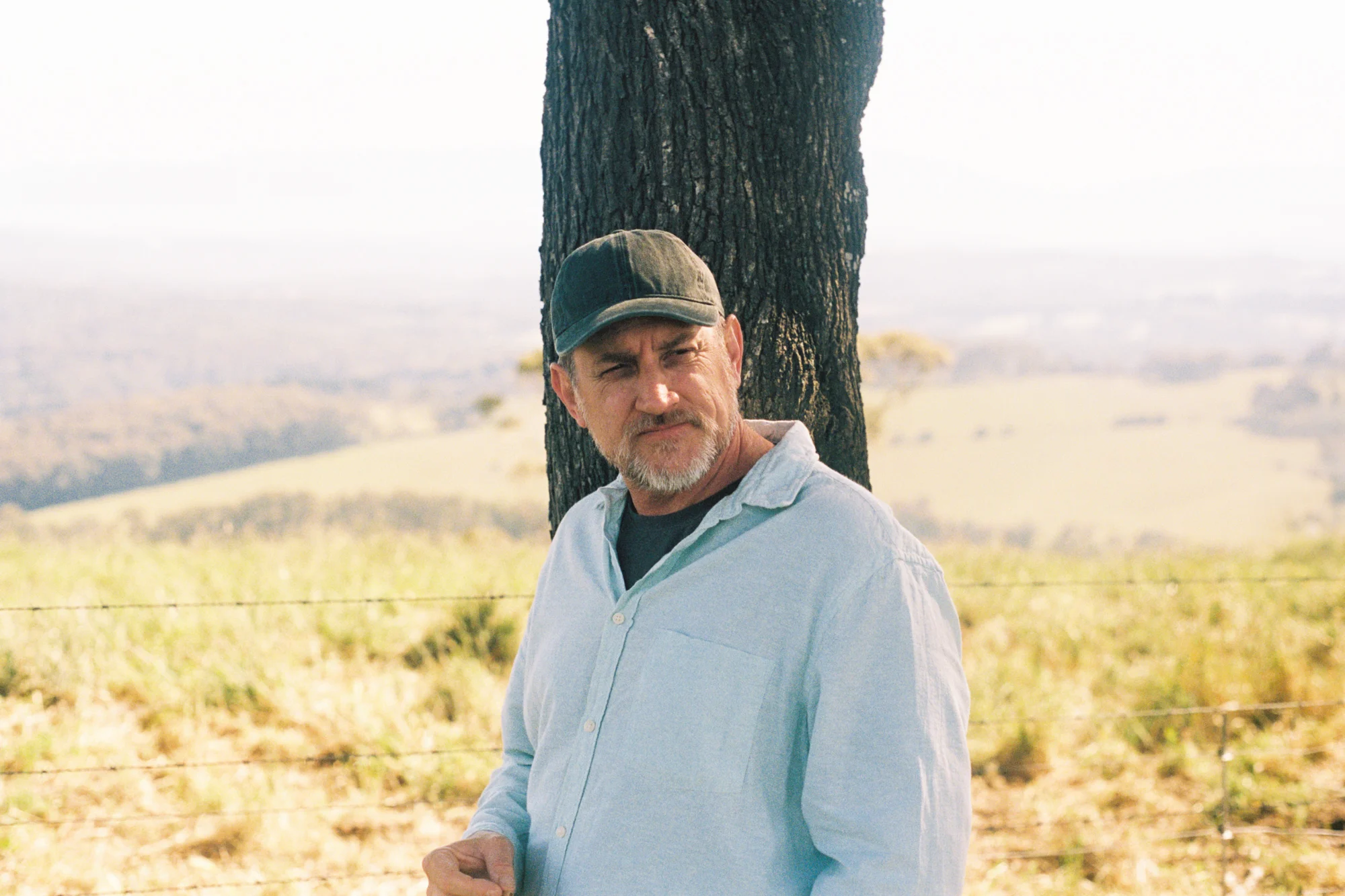
In Asia, I worked with the Malaysian Government and managed to get a stay of execution from Mahathir’s government for a cannabis criminal, and had the first import licence for seed until the change of government.
I also worked in Thailand for two years, and was the first western speaker in the Thai parliament. We worked to make it legal, inviting Californians and Canadians to be usurped for the capitalist rewards and not the benefit to people, many of the original activists being betrayed by the Government.
I have seen many of the original people fighting for everyone’s access, defeated to create change. I have seen the destruction to family units because access to cannabis is expensive and difficult. I have witnessed children taken from parents because they wanted to use cannabis as a safe alternative medicine. I have seen parents dying of cancer not being able to continue to afford their oils.
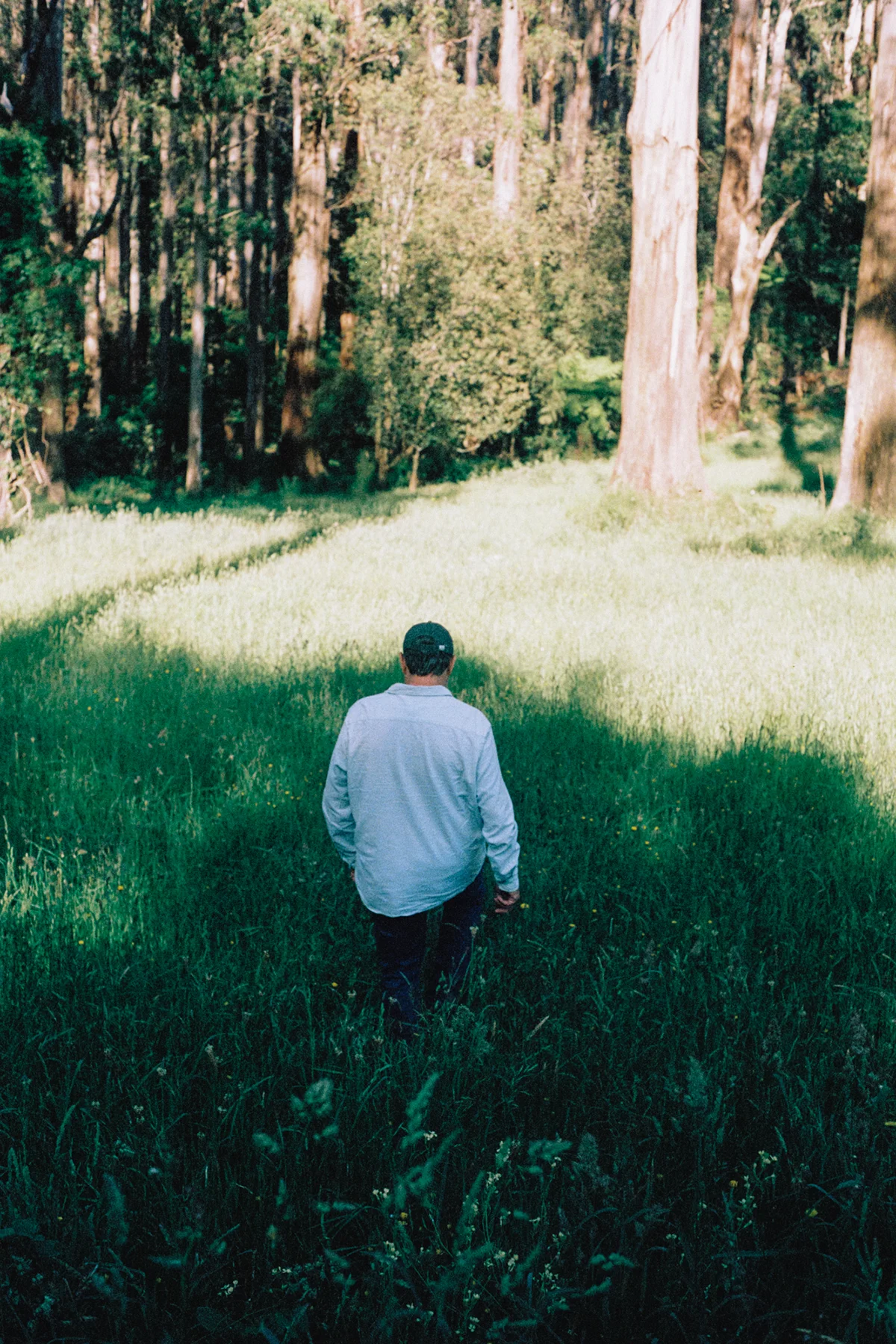
What is my North Star, you ask? It is to focus on the core purpose of what brought me to this industry. We need to find a way to provide medicine for the most vulnerable communities. We need to create a new access pathway so that children and those who need the medicine the most, are able to benefit from the plant. Home grown must be decriminalised.
We need to find a way to be compassionate again. We must do better in this industry and find a way to ensure that the plant is available to children and vulnerable people who need it the most.
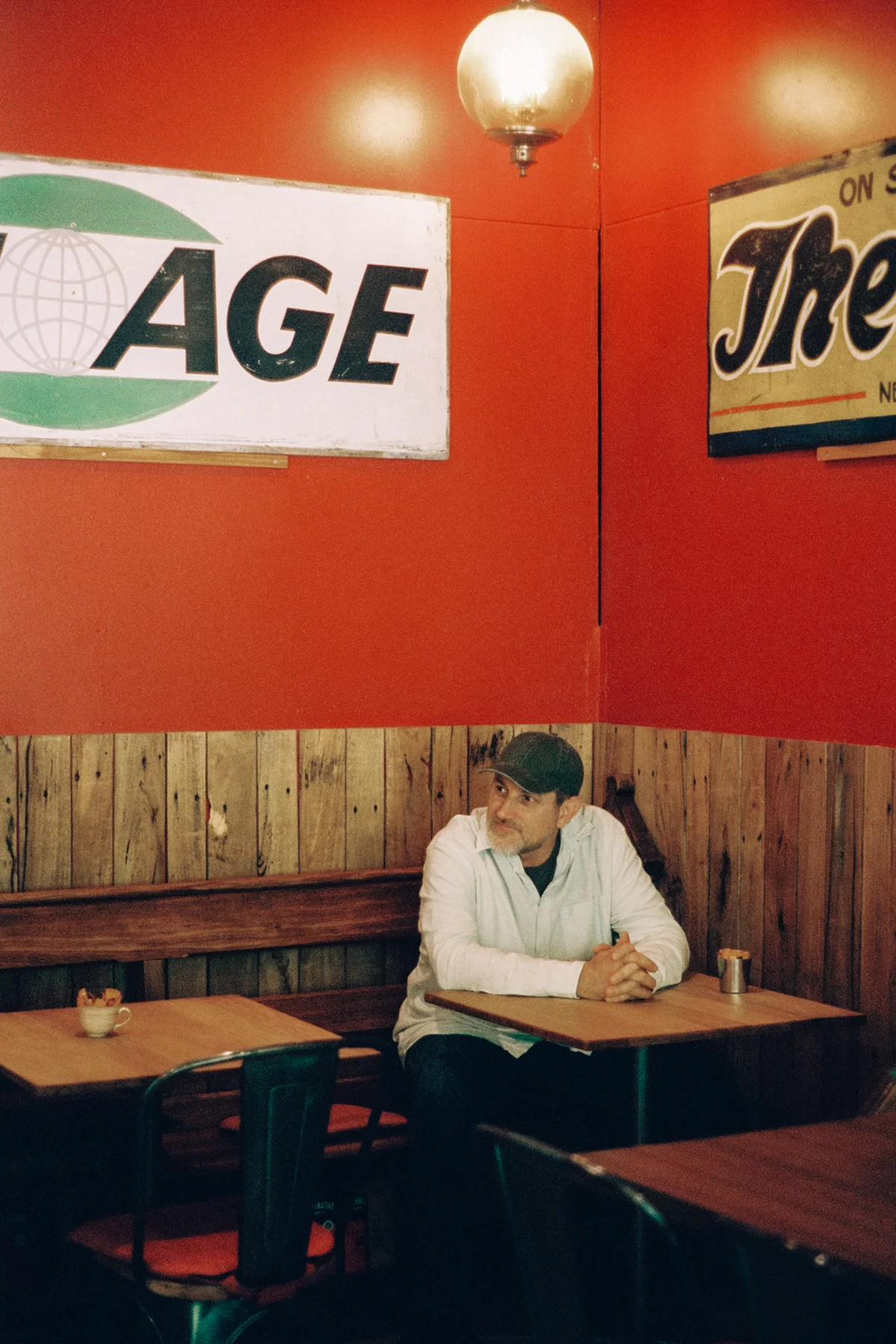



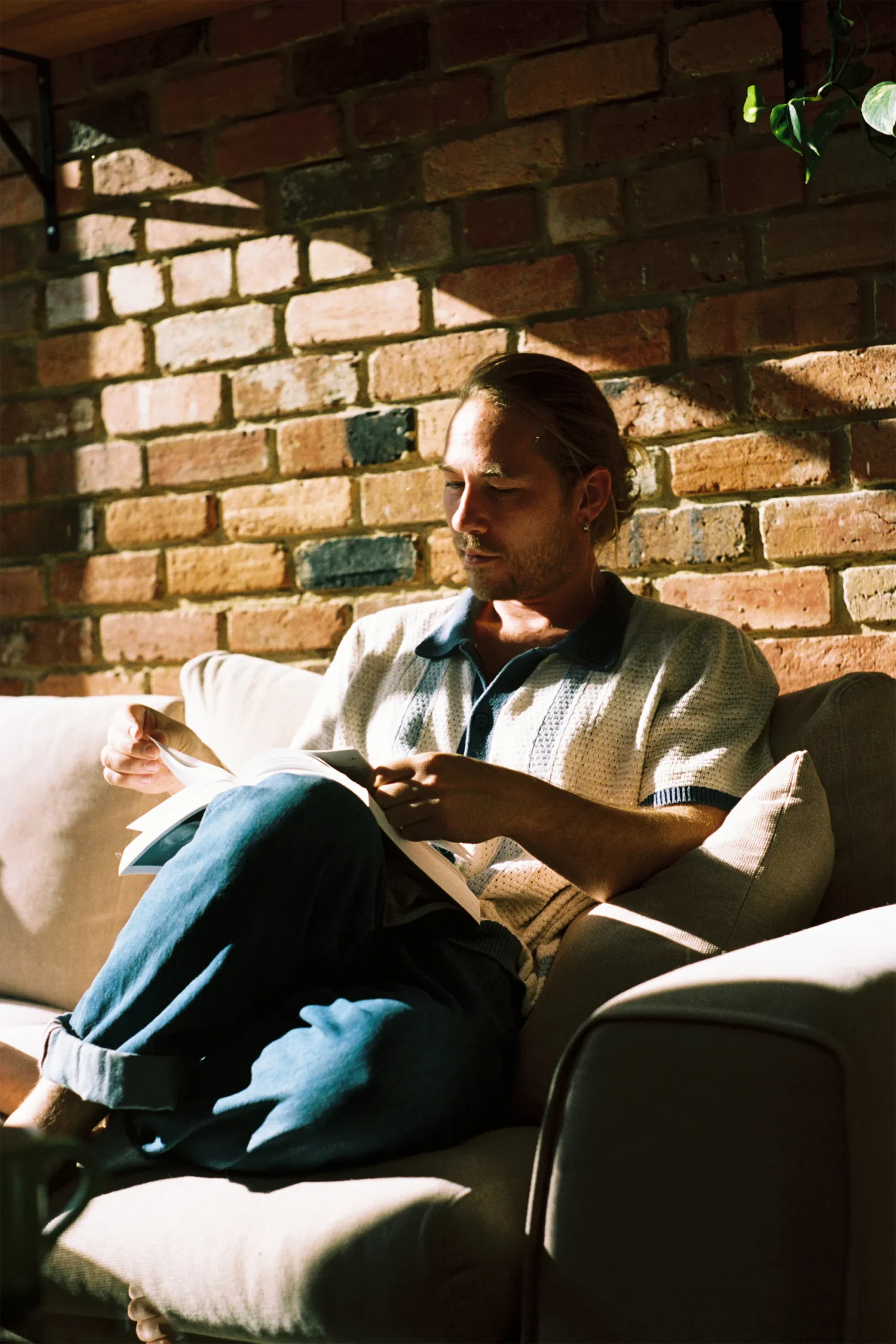
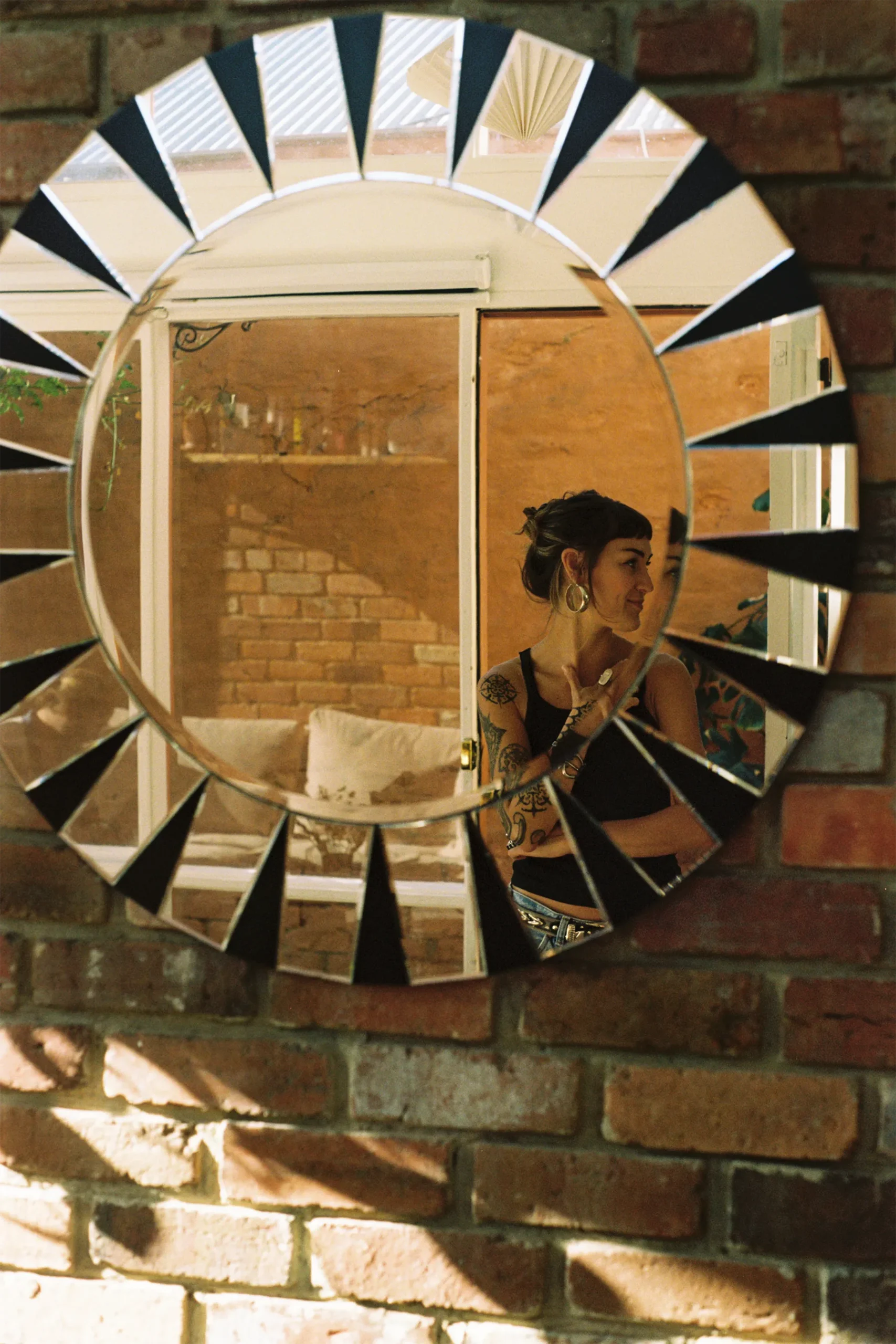
Photography ANTONELLA MORELLI
Interview BEE MOHAMED
Words TOM ARKELL
I am Tom and I am sharing my story of how love entered my life on a MS word document. This is also the first time that I have ever expressed publicly about my wife that other people are going to read.
Interview with Bee Mohamed on June 3 2025
For a bit of context, I met Gabi in Buenos Aires on New Year’s Eve in 2011. They don’t know how to make pizza there, but the choripan is great and the statues are pink.
I remember that t-shirt, I remember that smile, I remember the sound of her voice, I remember her hair, I remember walking by her side, I remember thinking ok wow! I like this girl, qué hermosa.
She even held my beer for me when I had to pee and I couldn’t believe she was still there when I came back. That night in my mind is a finely woven tapestry.
It’s colourful but monochromatic, lysergic, surreal but visceral, and you have to squint to see some of the details.
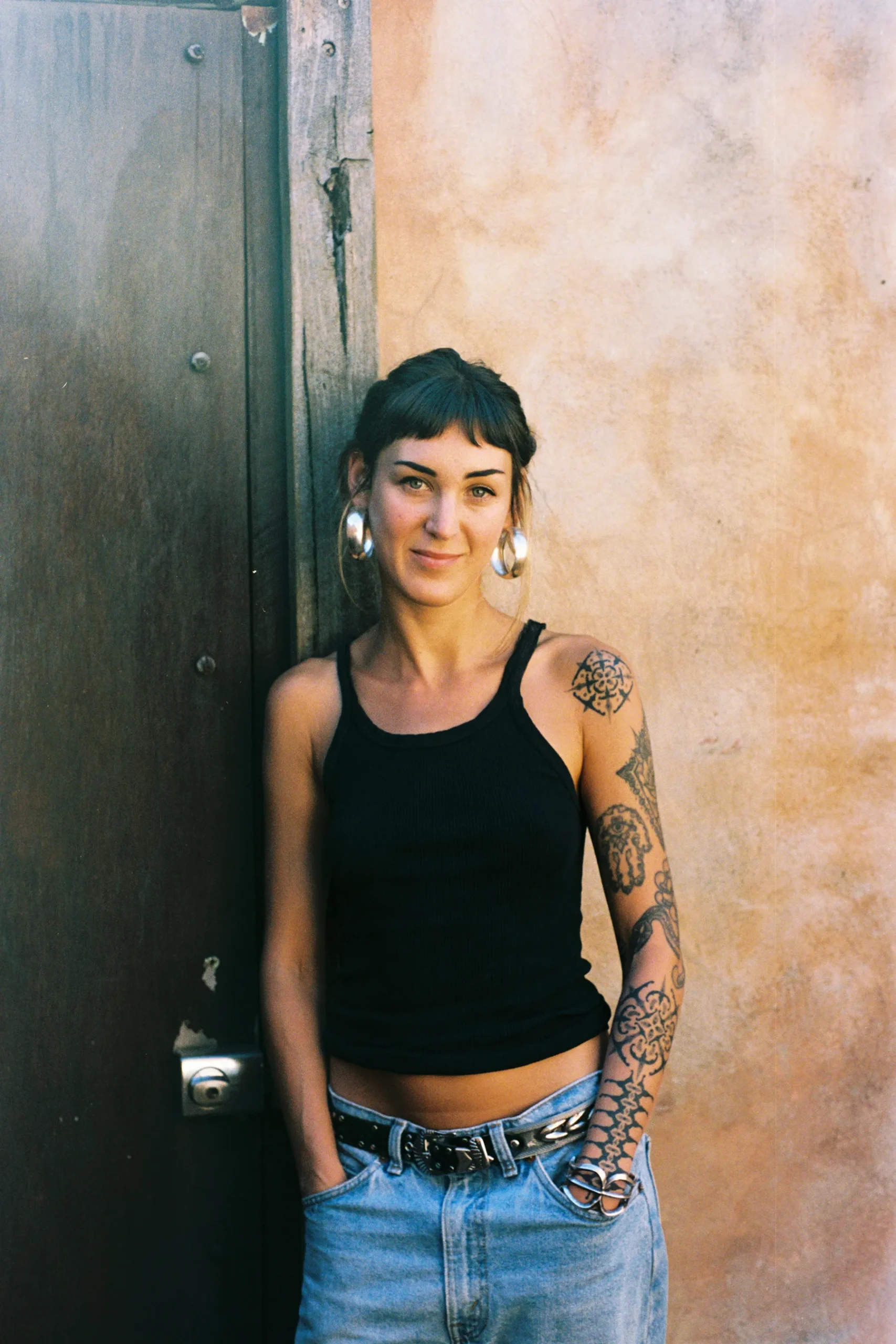
I don’t even know how to describe how I was feeling the next day. Elated? Was that a dream?
Like huh what the fuck just happened? Yeah, maybe that. They don’t call me eloquent for nothing. I mean we met for a night, skyped for a year, and then I was eating tacos with her in Brooklyn. We might have smoked a couple of doobers too.
Love is a winding path that has brought me immense joy, a lightness of being, revealed my weaknesses but also providing a sense of calmness in a world that can at times feel turbulent and difficult to make sense of.
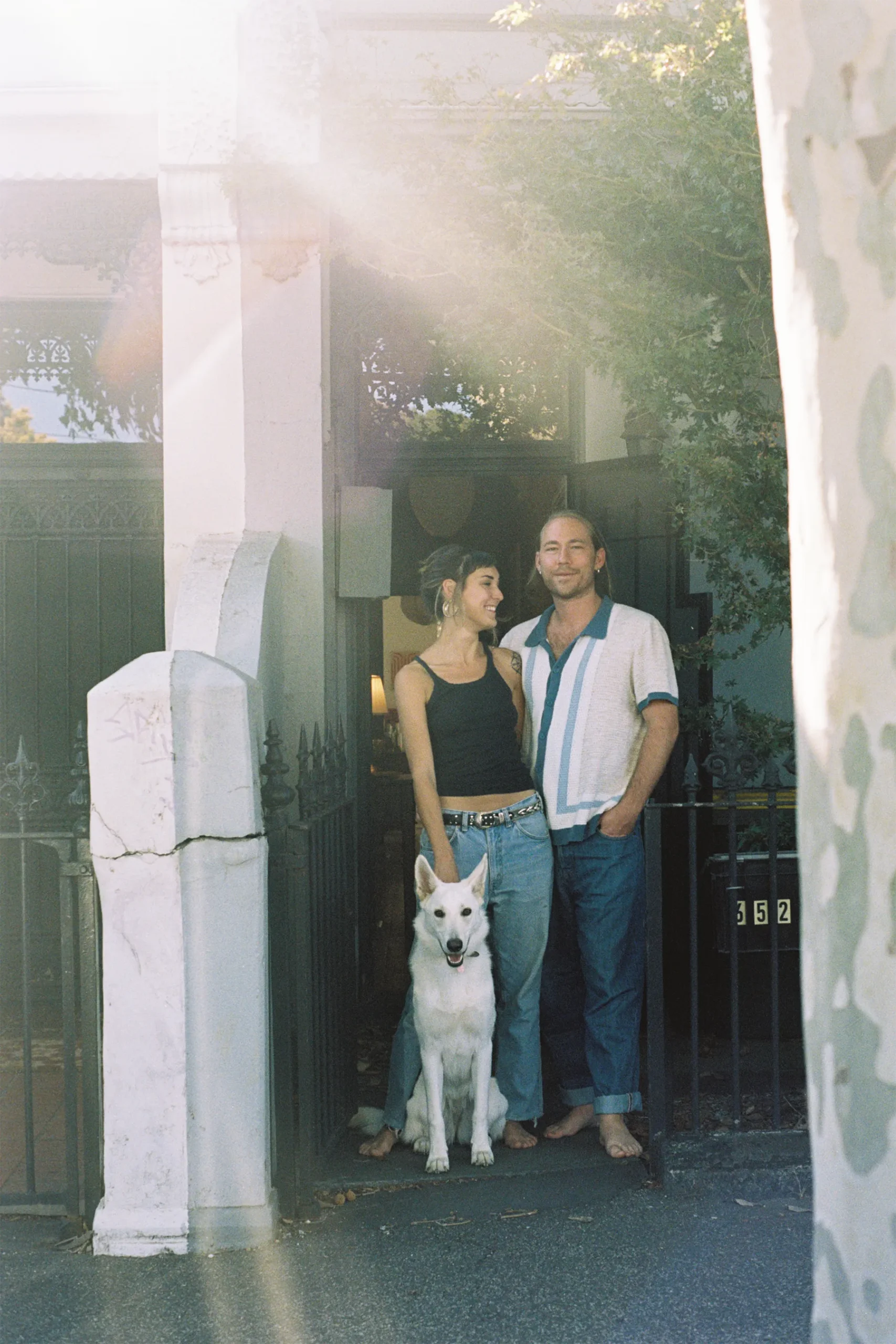
We’ve since travelled the seven seas (mainly via the air), from New to York to Rome to Tokyo and home. We’ve had so much fun, and so many adventures, and so many bowls of noodles!
Sometimes more than I think I deserve. I count my blessings when I think back over the time we have had together thus far.
Of course, it hasn’t all been easy. We’ve had our challenges, we’ve had some problems, and I know we will have plenty more. What relationship doesn’t? Even roses need pruning.
It’s funny how sometimes you think you’ve got it all figured out, and then yet again you realise you know absolutely fuck all, and you have so much more still to learn. It’s humbling if nothing else.
We’ve now been best friends for 13 years and I know we always will be. There is little more I am sure of in this world. What I see in the future is more adventure, more late-night meals, more being responsibly irresponsible, more being wrong, learning to listen better, and learning to understand more. I don’t expect everything to go to plan, but I promise to be your best advocate, and your number one fan.
I’ve learned from you how to be more tolerant, how to get better at speaking about what’s going on in my head, how to worry less (at least a little bit less), how to be more present, and how to not take things too seriously. These are truly great gifts to have received.
We often say that we started as best friends, and I would add that everything else is a bonus.
With lots of love from me to you, Gabi.
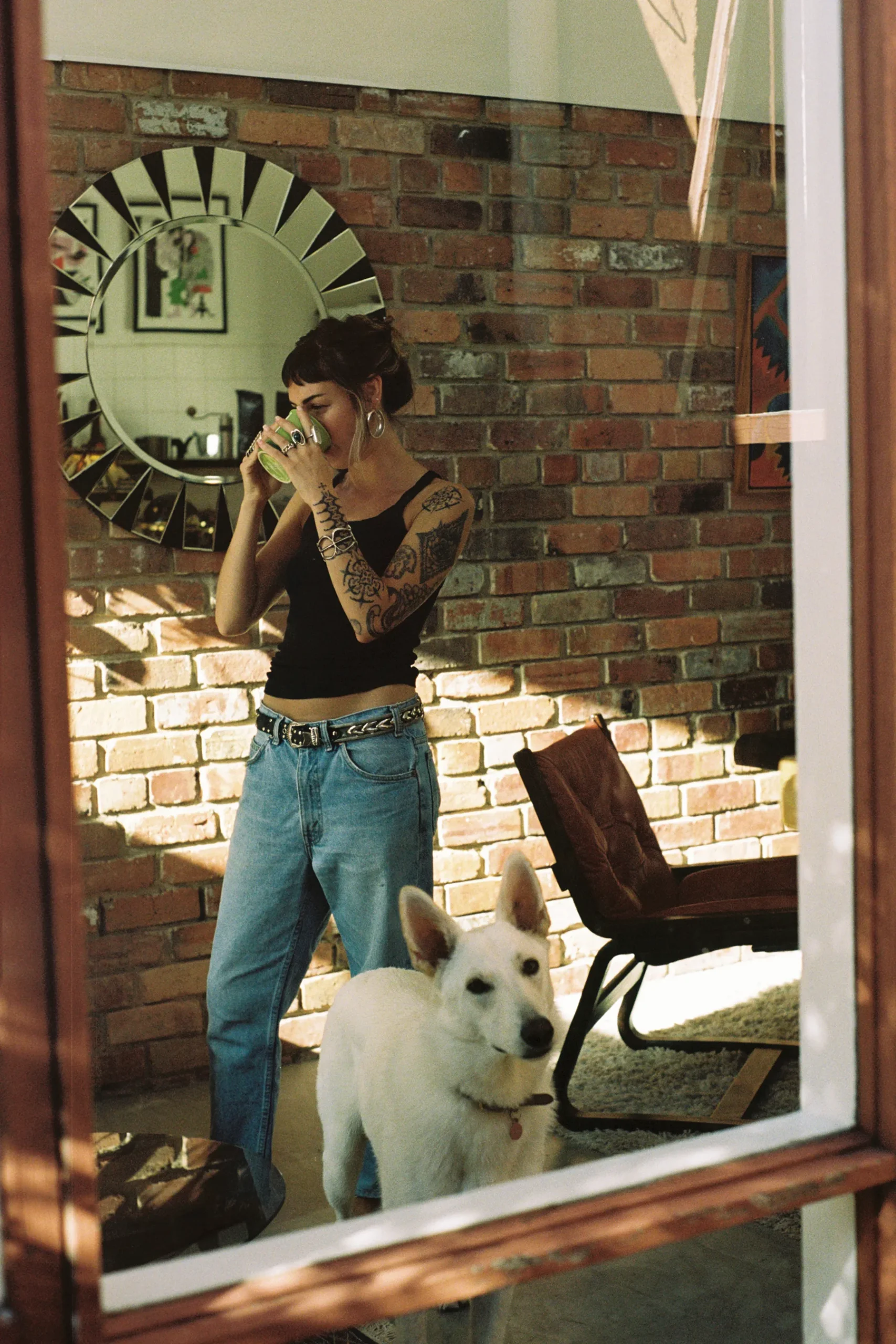


Photography ANTONELLA MORELLI
Words BEE MOHAMED
From a young age, I knew my purpose in this world was to help others.
I was born and raised in Singapore, where arbitrary and unlawful execution (by death penalty) for drug-related offences continues. We learnt of the punitive drug laws in primary school, where drug use and/possession would mean you either end up in jail or dead.
I knew from a young age that this was inhumane, but of course my community was shocked by my opinions due to popular beliefs in Singapore that drug use or possession should be prosecuted.
My parents would agree that from a young age, I questioned everything – from the religion I was brought up with, cultural traditions and political systems. There was no doubt that I was always the ‘black sheep,’ non-conformist and odd one out. It was no surprise that I consumed cannabis as soon as I left Singapore, as an act of rebellion of course.
I migrated to Australia when I was 19, determined to make an impact in this world. I was always drawn to learning and reading about challenges facing the world – genocide, human trafficking, child soldiers, and the list goes on.
Bee Mohamed, April 2025:
From a young age, I knew my purpose in this world was to help others.
I was born and raised in Singapore, where arbitrary and unlawful execution (by death penalty) for drug-related offences continues. We learnt of the punitive drug laws in primary school, where drug use and/possession would mean you either end up in jail or dead.
I knew from a young age that this was inhumane, but of course my community was shocked by my opinions due to popular beliefs in Singapore that drug use or possession should be prosecuted.
My parents would agree that from a young age, I questioned everything – from the religion I was brought up with, cultural traditions and political systems. There was no doubt that I was always the ‘black sheep,’ non-conformist and odd one out. It was no surprise that I consumed cannabis as soon as I left Singapore, as an act of rebellion of course.
I migrated to Australia when I was 19, determined to make an impact in this world. I was always drawn to learning and reading about challenges facing the world – genocide, human trafficking, child soldiers, and the list goes on.
I wanted to be an international human rights lawyer. I volunteered in impoverished areas in Jakarta and taught English in Vietnam for children with HIV. I think we learn empathy naturally when we travel and encounter people in the real world.
When I arrived in Australia, I worked with asylum seekers who were detained on Christmas Island where I helped newly arrived refugees from war torn Sudan. It didn’t take me long to realise that injustice existed in our own backyard.
Injustice exists in our healthcare system and I ended up in policy work, focusing on health. It was when it took me almost 6 months to advocate for a medical transfer for a Tamil asylum seeker who arrived with an amputated leg that I then realised my passion was better rights and sovereignty within the healthcare system.
I spent my first few years as a graduate in the walls of Parliament House in Canberra when the Gillard Government brought in the National Disability Insurance Scheme in 2012. I worked as a Policy Officer and gathered stories of those who will be impacted by the scheme.
During this time, I was diagnosed with PCOS and suffered from debilitating pelvic pain. As I grew up without pharmaceuticals, cannabis became my medicine of choice as my time in the health space got me intrigued with ‘alternative medicine.’
My life has always been about activism and the biggest milestone was in 2018, when I advocated to the Federal Health Minister, and all State Health Ministers to address the devastating deaths from prescription drug misuse and overdoses.
I witnessed the rising number of deaths caused by prescription drugs. Coroners reports on my desk every week, highlighting polypharmacy that eventually led to overdose fatalities. Families writing to us after losing a family member to a prescription drug overdose. This experience showed me the current practices within the Australian healthcare system and led me to believe that the system was failing in critical ways.
In September 2019, I started in the medicinal cannabis industry after being approached by Canopy Growth Australia to work in their Government Relations team. Once again, the injustice within the healthcare system was evident.
Patients were not able to access a medicine that gave them a quality of life. Affordability was a huge barrier, and continues to be. Legally, patients are not able to drive while on their medications and at times, subject to the discriminatory workplace drug testing. We need to do so much more and this inspired me to start Mata, where I hope through the power of these stories, we are able to create change within the healthcare system, through sovereignty and vitality.
Purpose feels good, because it is not really about you. I believe it is about how we can be of service to others and the importance of speaking up against any injustice when we see it.
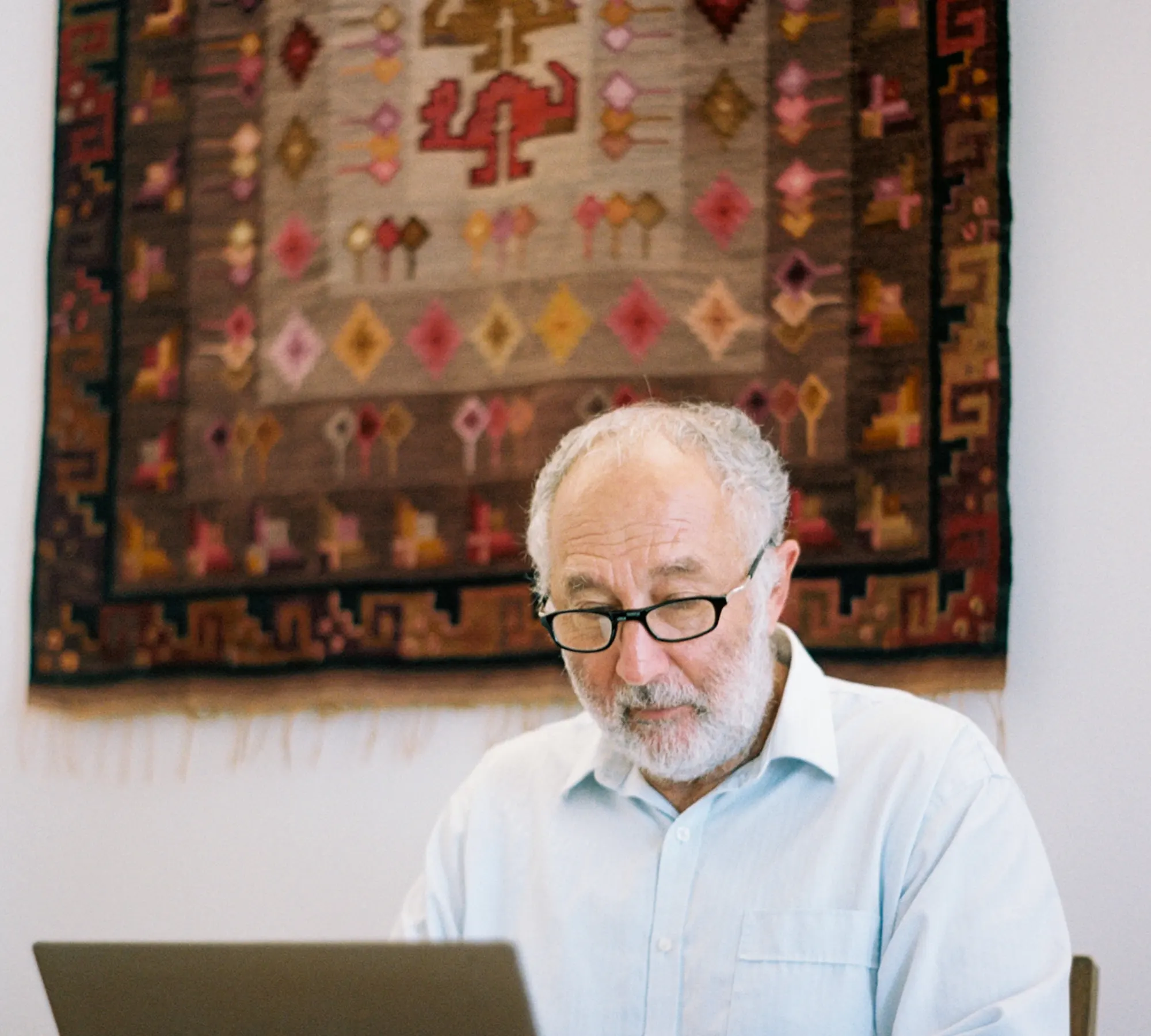
Photography ANTONELLA MORELLI
Words DAVID HEILPERN
When I started practicing law, I built up a steady client base of cannabis growers and users, and keenly felt the injustice of imprisoning people for the weed. Many magistrates locked people up in those days, even for first offence possession charges, while letting drink drivers and ‘wife bashers’ off with warning after warning.
I was seething at the hypocrisy, but largely silent – kids, security, fear of alienating the bench and my peers. But then I went to Auschwitz. I cannot overemphasise the impact this had on me, seeing the photos of my murdered relatives, the containers of teeth/hair/skin. I realised that evil is likely triumph if good people remain silent, and when I returned I committed to myself that I would speak up, and as a lawyer on the north coast of NSW, hippyland, there was really only one obvious cause.
I enveloped myself in the drug law reform movement, helping to kick off the first MardiGrass, running test cases, writing articles and books. I morphed from private practice into academia, and developed an extremely popular unit – the first of its kind in Australia, still titled “Drugs Crime and the Law”. We started a law school at Southern Cross University with an emphasis on personal and environmental justice. The cannabis movement directed tons of cash into the frontline radical environmentalist movement, and hence the connection between drugs and forest blockades. I encouraged this pairing in my activism, teaching and ongoing legal practice.
Photography ANTONELLA MORELLI
Words MICHEAL BALDERSTONE
Interview BEE MOHAMED
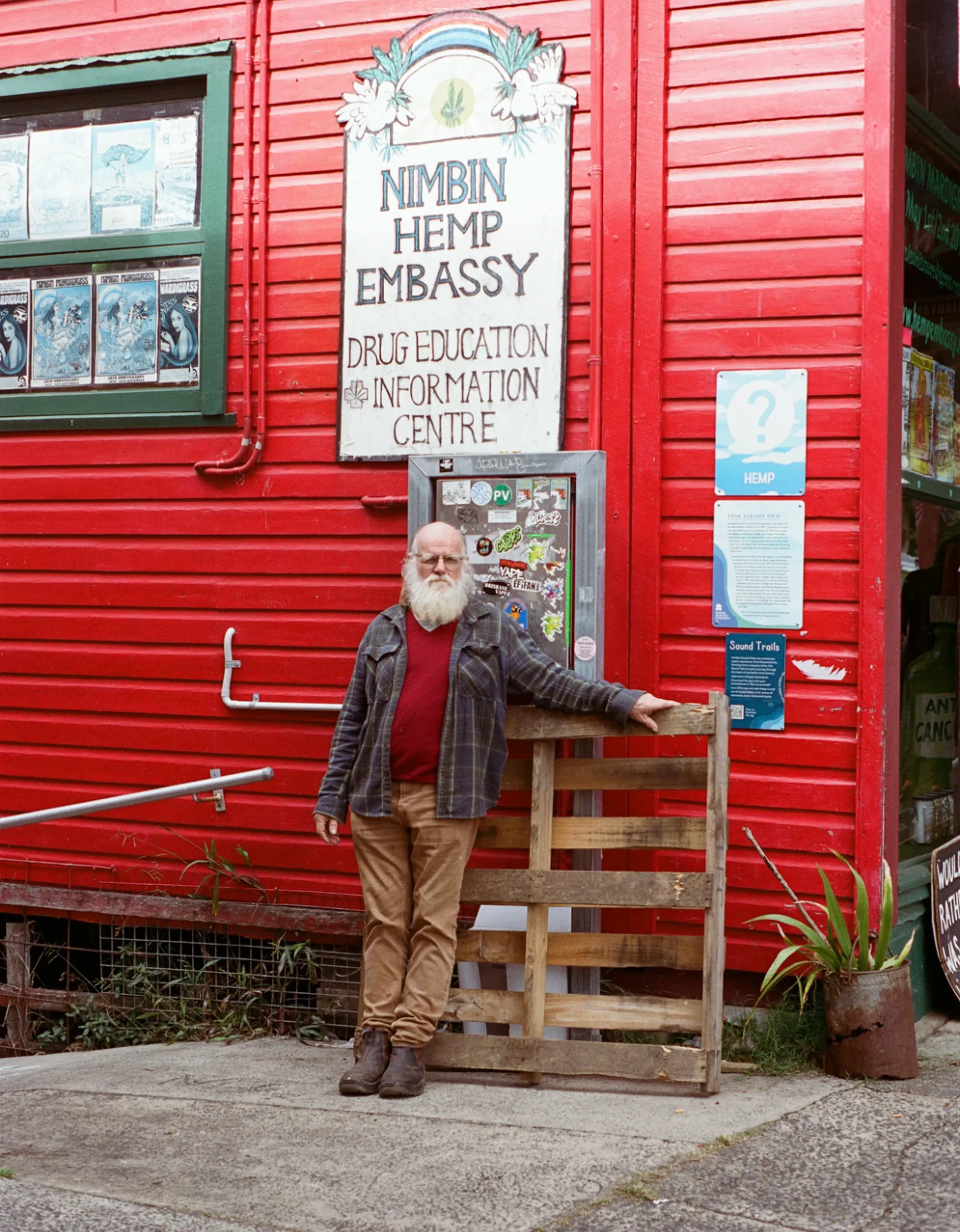
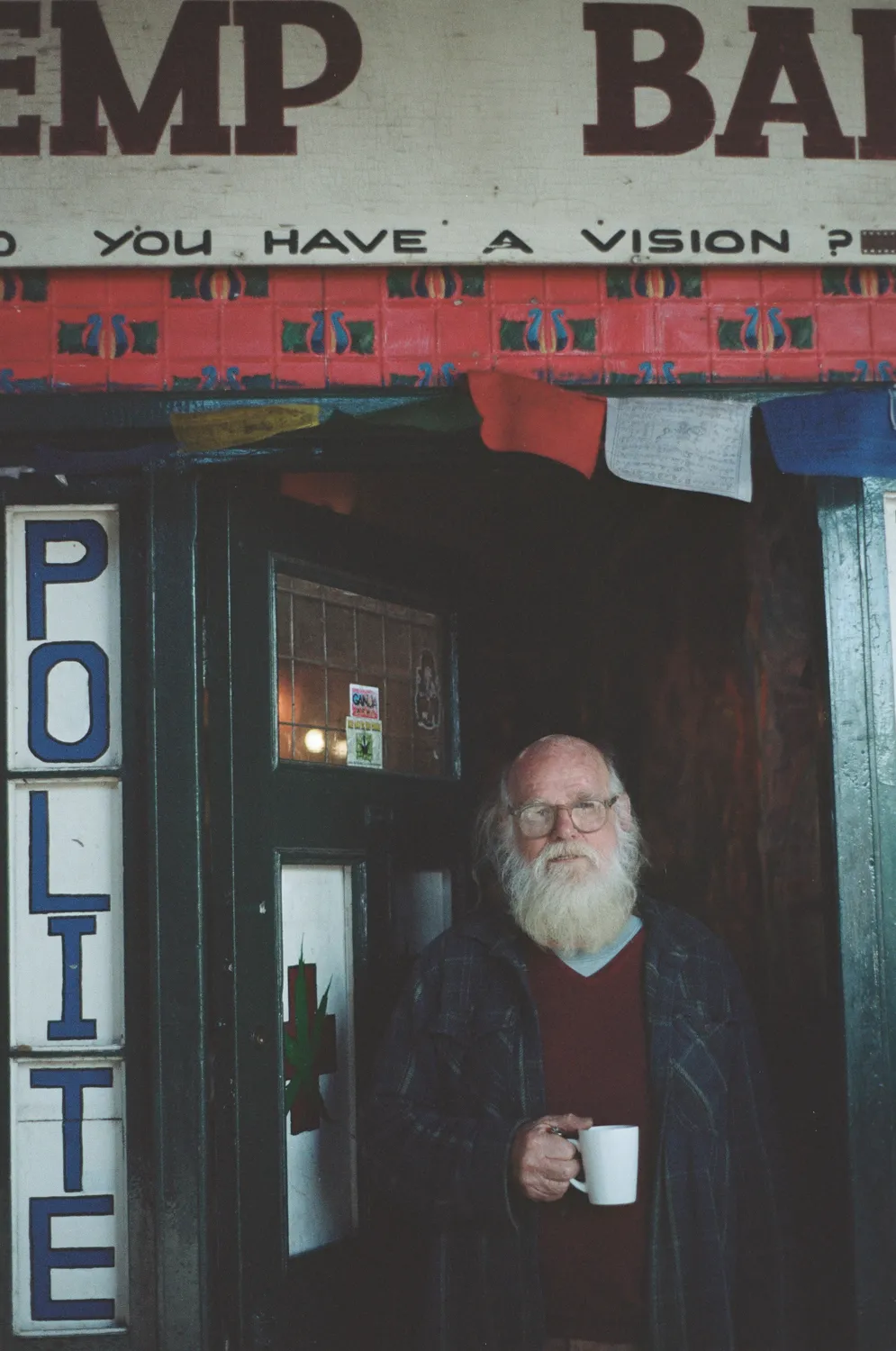
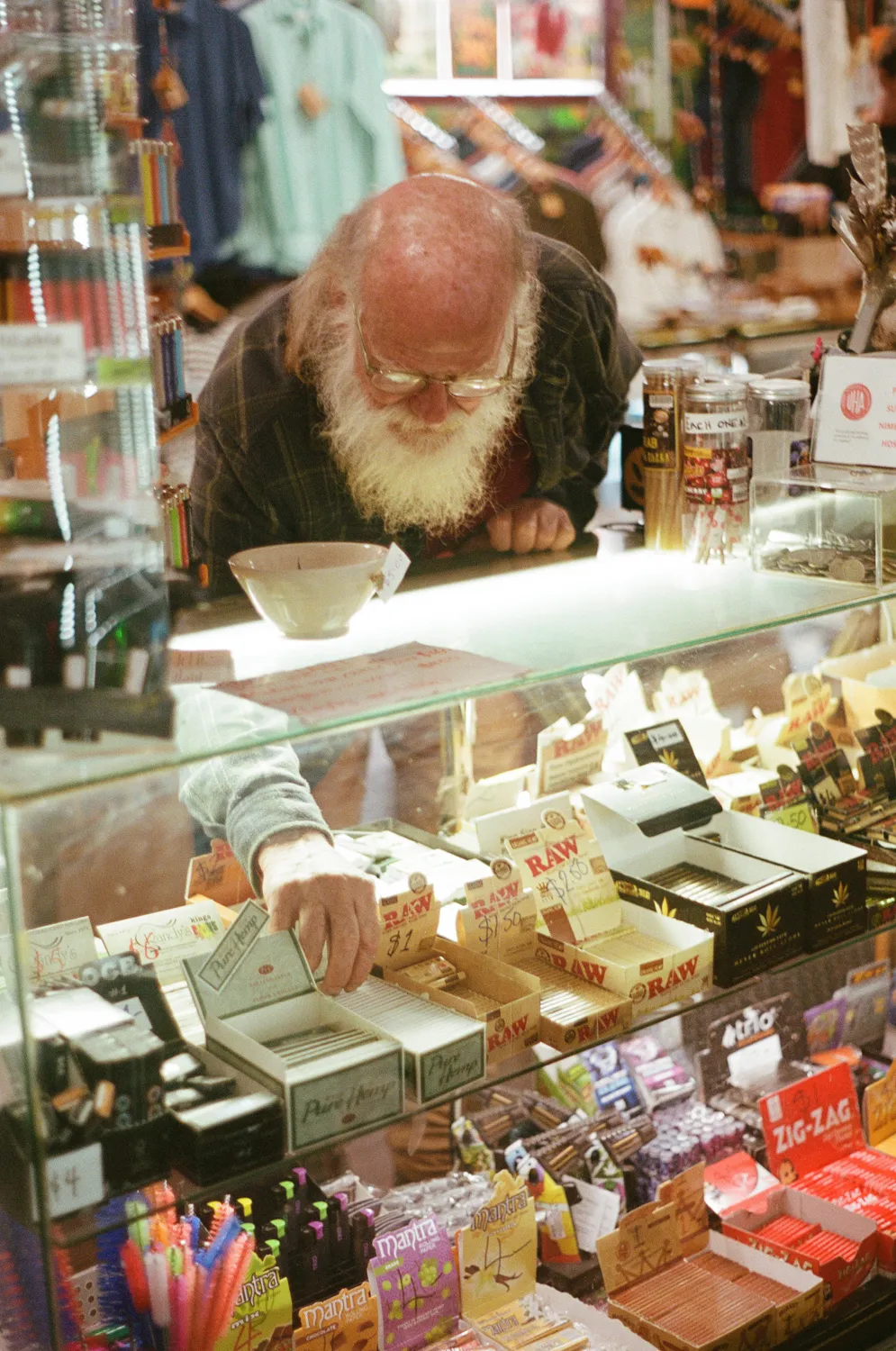


Photography ANTONELLA MORELLI
Words HELEN KAPALOS
Interview BEE MOHAMED
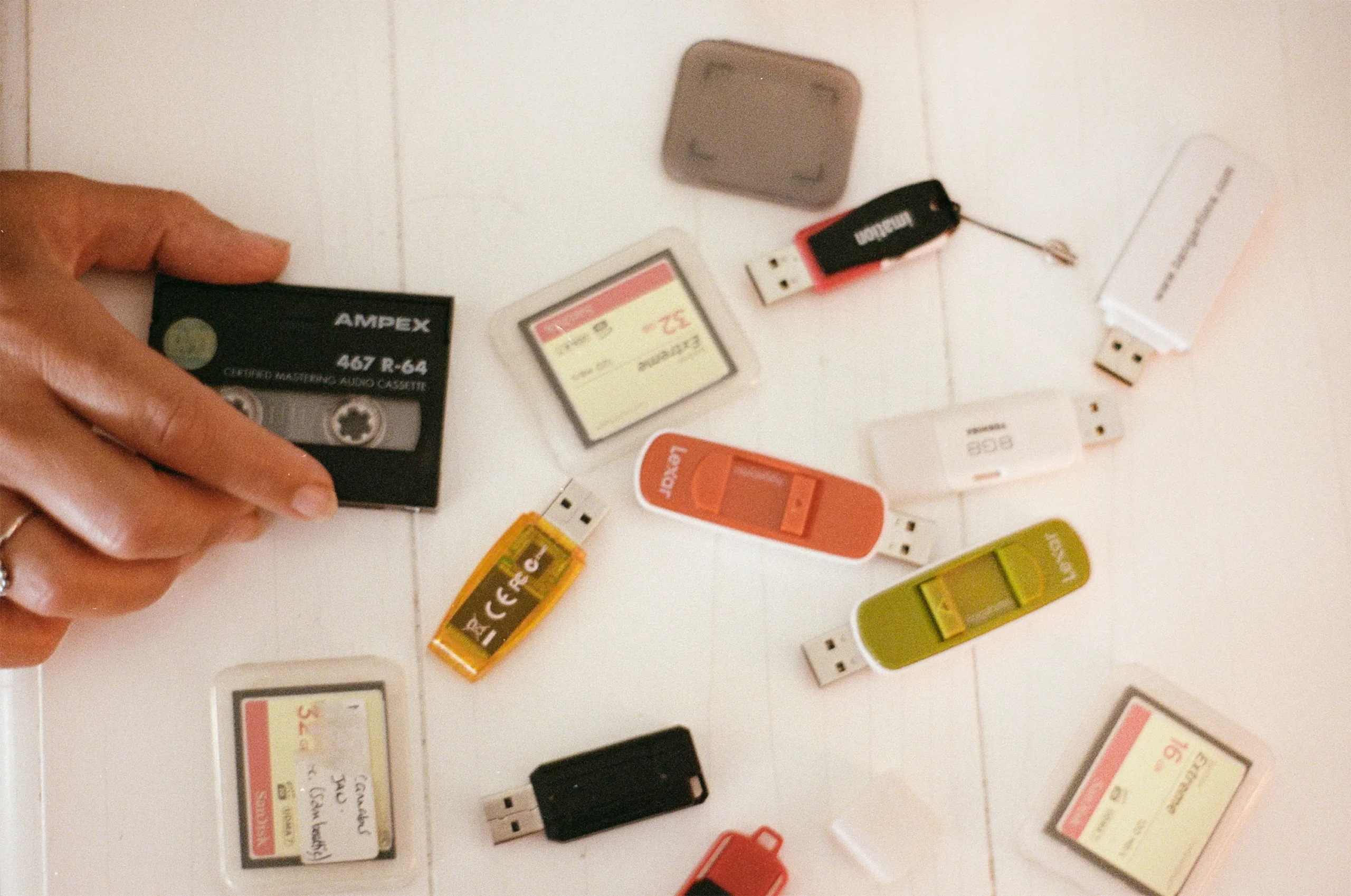
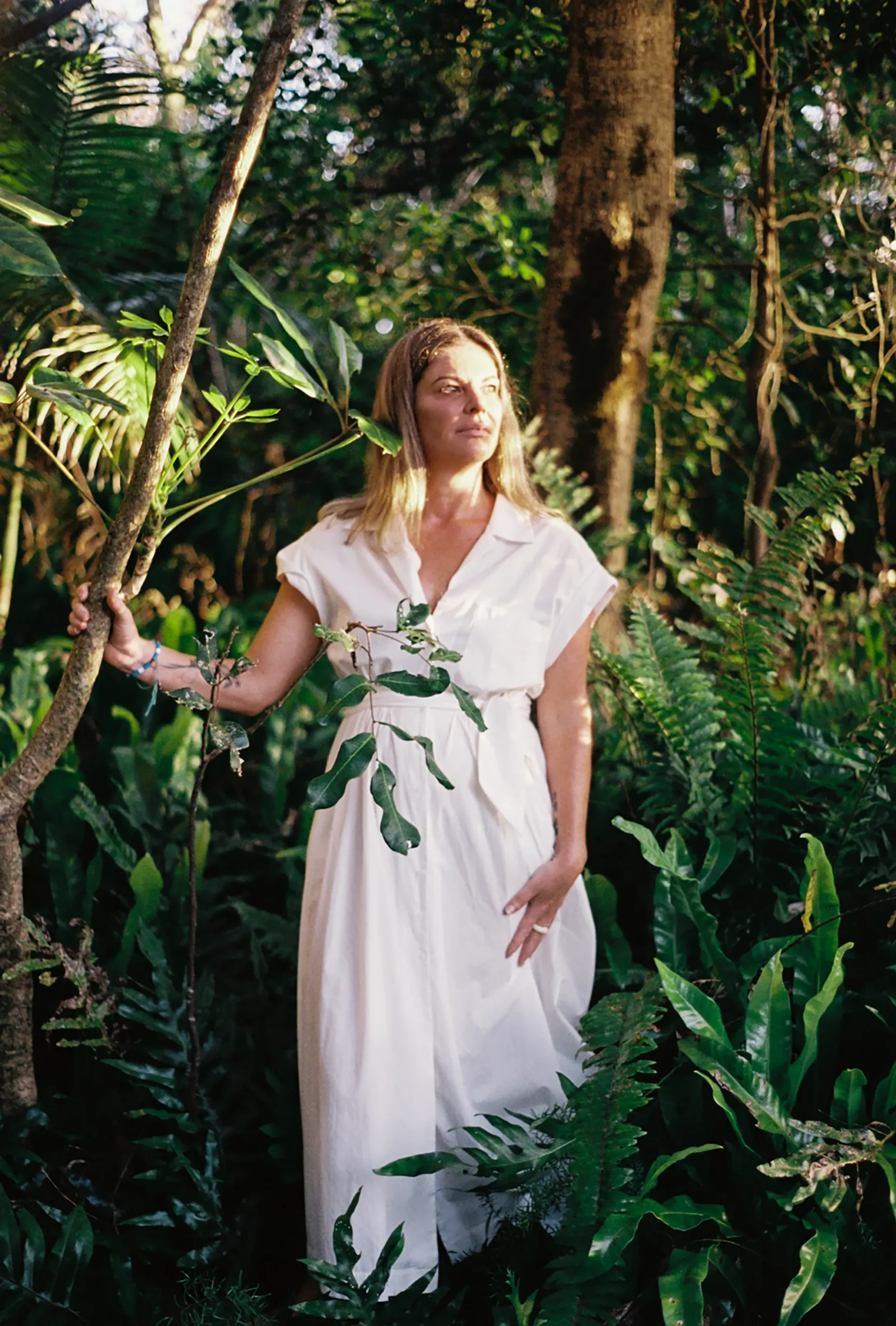
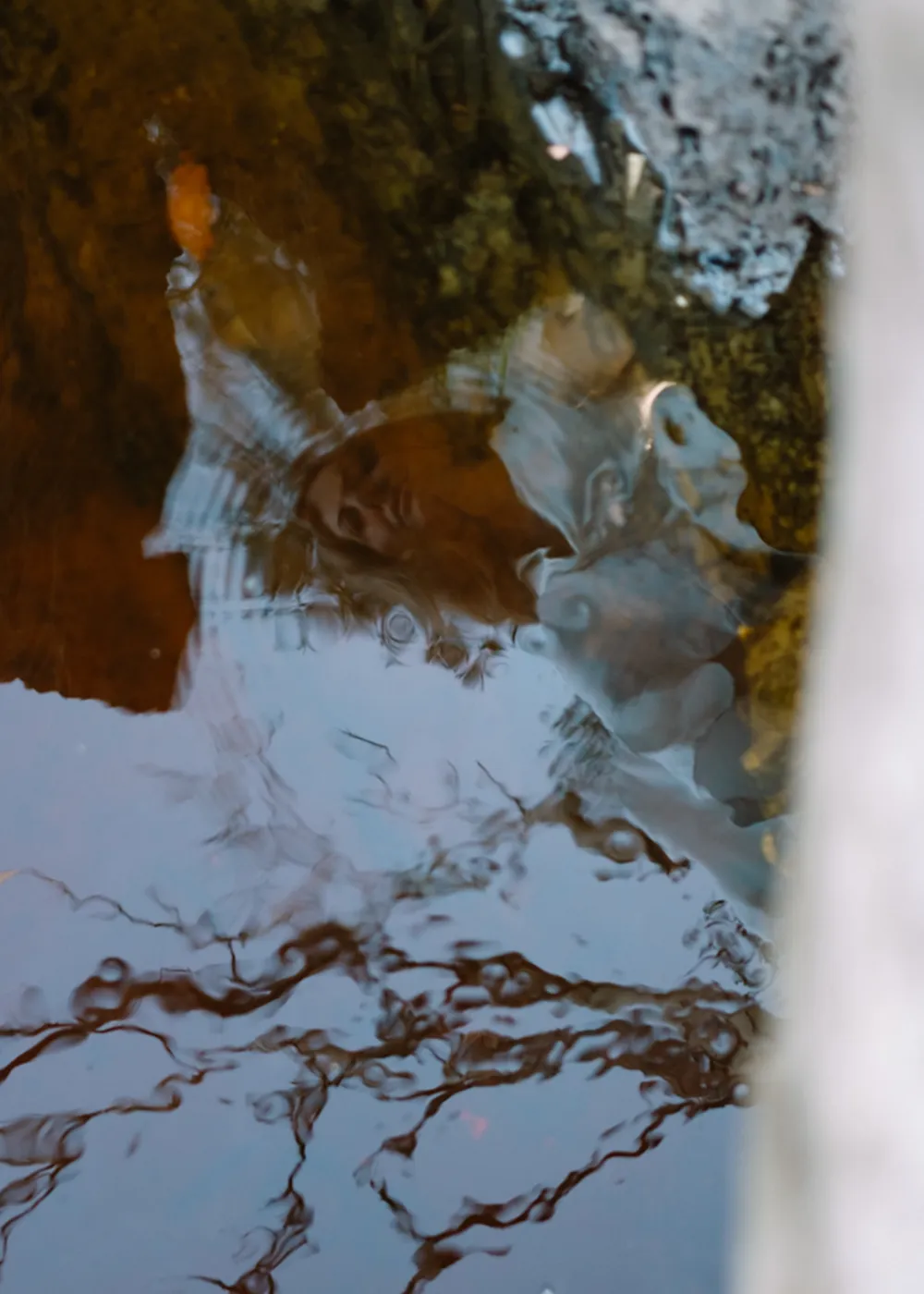
Photography ANTONELLA MORELLI
Words KYLA DE CLIFFORD
Interview BEE MOHAMED
I’ve been a medicinal cannabis patient now for over three years. I use medicinal cannabis for chronic pain, adenomyosis, perimenopause and anxiety. My journey as a patient began after I had a shoulder injury that affected my quality of life and I was prescribed opioids over a prolonged period of time.
The opioids were making me both physically and mentally unwell, so I kept asking for my doctor to taper me off them. However, he gave me no alternatives and continued prescribing the medications. I remember saying to him, “I feel like the painkillers are mapping a path to my brain and they told me “No, no Kyla, we have seen your scans, you definitely need these medications to manage your pain.
My father passed away as I was trying to manage my chronic pain and soon after, my mother got diagnosed with non-hodgkins lymphoma. It was a devastating time for me and during this period, I walked away from a marriage of eighteen years.
Things were very difficult during this time and it was not easy to stick to my truth for the type of treatment that worked for me. I have always been interested in natural products, both my Nanna and Grandad have shown me a more natural way to heal, but cannabis in my limited knowledge previously, was only used recreationally. It made me super sleepy so I never thought it would give me relief for pain.
Then one day someone told me to try CBD for my pain. I did just that and realised that my anxiety was also taking a back seat. I realised that there was more to the plant than I realised. The plant has helped me reconnect with myself, my values and who I am. From this, I became deeply passionate about educating women on medicinal cannabis, particularly those going through perimenopause and cancer.
In trying to assist my Mum and her diagnosis, I realised how much more needs to be done in ensuring that medicinal cannabis becomes a valid form of treatment for many others. The journey she has had made me realise how little we know about the plant and that the stigma is very real, even till this day.
My core values are family, community, honesty, integrity, service, creativity and connection. I hold a strong connection to nature, the beach and the mountain anywhere that is green and lush. This experience made me more determined to educate people about the plant and to create community around the plant. To encourage other women to take what they have learned and share it with other women.

